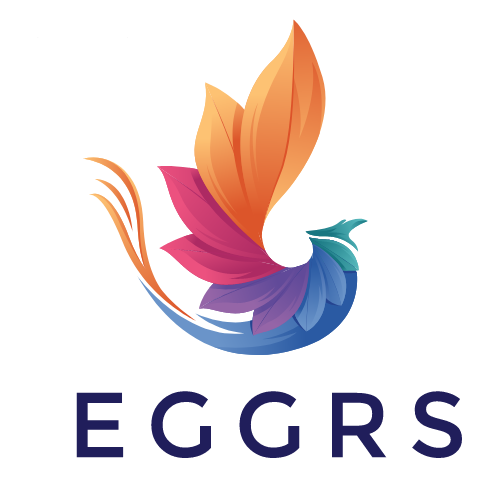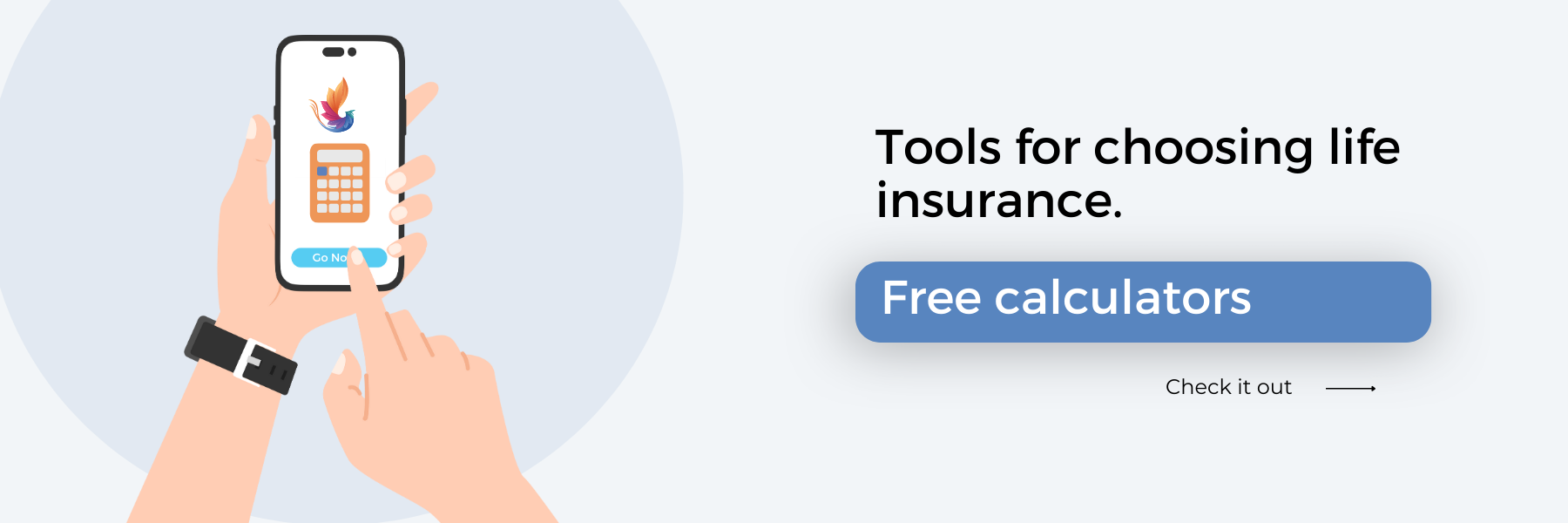Term Life Insurance
EGGRS Life Insurance Solutions
An affordable type of life insurance that guarantees payment of a stated death benefit if the covered person dies during a specified time.
EGGRS Insurance Solutions
Free Quotes for Life Insurance
Get a free quote today using our easy, online life insurance quoting tool.
.png?width=1200&height=600&name=Term%20Life%20Insurance%20Pillar%20Page%20Featured%20Images%20-%20EGGRS%20(1).png)
What is term life insurance?
There are three main types of insurance: whole life insurance, universal life insurance, and term life insurance.
Term life insurance offers a time-limited death benefit that can be used to provide financial security for loved ones. Once the policy's term has finished, holders can choose whether they'd like to renew coverage, switch over to permanent protection or simply let their plan lapse.
A level term policy is the most common type of term policy, meaning that the value of the death benefit stays the same for the entire time your policy is active. The benefit can also be decreasing, meaning it shrinks over time, typically in one-year increments.
Overview:
- term life insurance guarantees payment of a stated death to it's beneficiaries during a specified time
- term life insurance has no other value than the guaranteed death benefit; there is no savings component as with a whole life insurance policy
- term life premiums are based on age, health and life expectancy
- it may be possible to turn your term life insurance policy into a whole life insurance policy, depending on the insurance company
- life policies can be purchased at 10, 15, or 20 years
If you're interested in cyber insurance for your business, whether you're in healthcare, Ketamine clinic, IV therapy, oil and gas, water solutions, Amazon seller, inbound marketing, check out CiteTech.
How does term life insurance work?
When investing in a term life insurance policy, the insurance company calculates your premium based on the policy's value (the payout amount), age, gender and overall health.
In some cases, the insurance company may require a medical exam. The insurance company may also inquire about your driving record, current medications, smoking status, occupation, hobbies, and family history.
If you were to die within the policy's term, the insurer will pay the policy's face value to your beneficiaries. (Learn more about what happens after you die with term life insurance.) This cash benefit—which is, in most cases, not taxable—may be used by beneficiaries to settle your healthcare and funeral costs, consumer debt, or mortgage debt, among other things.
If the policy were to expire before your death, there is no payout. Depending on your insurance company, you may be able to renew a term policy at its expiration, but the premiums will be recalculated based on your age at the time of renewal.
Learn more about term life insurance for business owners or how to request an insurance quote from EGGRS.
How much term life insurance do I need?
Having a life insurance policy with a large enough death benefit in place for your family requires the knowledge of how much it takes to feed, house, clothe and educate your children through their adulthood.
Below are a few general rules people use to help determine how much they need for term life insurance:
- Choose a death benefit that is 10x your salary
- Choose a death benefit that is 10x your salary, plus college expenses
- Use the DIME formula (Debt, Income, Mortgage, and Education): Total your debts, mortgage and college expenses, plus your salary for the number of years your family needs protection
- Human Life Value: A philosophy which is your lifetime income potential – what you’re earning now, and what you expect to earn in the future. Human Life Value suggests that you multiply your income by a variable based on factors such as age, occupation, projected working years, current benefits, etc. The calculation changes based on your age group so refer to the chart below for your age group. The easiest way to calculate this estimate is to use an online Human Life Value Calculator.
|
Age |
Maximum Life Insurance |
|
18-40 |
30 times income |
|
41-50 |
20 times income |
|
51-60 |
15 times income |
|
61-65 |
10 times income |
|
66-70 |
1 times net worth |
|
71-75 |
1/2 times net worth |
What is an example of term life insurance?
Thirty-year-old Peter wants to protect his family in the unlikely event of his early death. He buys a 10-year, $500,000 term life insurance policy with a premium of $50 per month.
If Peter dies within the 10-year term, the policy will pay Peter's beneficiary $500,000. If he dies after he turns 40, when the policy has expired, his beneficiary will receive no benefit. If he renews the policy, the premiums will be higher than his initial policy because they will be based on his current age of 40 rather than 30.
If Peter is diagnosed with a terminal illness during the first policy term, he probably will not be eligible to renew the policy when it expires. Some policies offer guaranteed re-insurability (without proof of insurability), but such features, when available, come with a higher cost.
What are the types of term life insurance?
There are many types of term life insurance policies available for each person's individual circumstances.
Level Term or Level-Premium Policy
Unlike some stepped rate plans that increase with your age, a level term plan or level-premium policy, offers rates that stay the same for the period of time you choose, even as you get older or as your health changes.
Level term life insurance is the most common and popular type of coverage because it's an affordable and simple way to provide financial protection for your family. A level term policy's premiums and death benefit stay the same as long as the policy is active.
Common types of level term plans:
- Yearly- (or annually-) renewable term
- 5-year renewable term
- 10-year term
- 15-year term
- 20-year term
- 25-year term
- 30-year term
- Term to a specified age (usually 65)
Yearly Renewable Term (YRT) Policy
A yearly renewable term (YRT) policy is a one-year term life insurance policy. When you buy a yearly renewable term insurance policy, the premium is quoted for a one-year term, starting in the current year.
Decreasing Term Policy
Decreasing term life insurance is a term life policy with a death benefit that gets smaller over time. This could be beneficial to you if you expect the beneficiaries to need less financial support as time passes.
Return of Premium
A Return of Premium term life insurance policy pays back all or a portion of your premiums if you live to the end of the term, although your premiums could be 2-4 times higher than with a level term policy. If your financial status changes and you let the policy lapse you may only get a portion of your premiums returned – or nothing at all.
Guaranteed Issue
A Guaranteed Issue policy is easier to get and don’t require a medical exam. However, the insurance company has to assume that you are a risky prospect, so your premiums may be much higher and may might not pay a full death benefit for the first few years of coverage.
What is convertible term life insurance?
Convertible term life insurance is a term life insurance policy that includes a conversion rider, which allows you to convert to any permanent policy the insurance company offers with no restrictions.
The conversion rider guarantees the right to convert an in-force term policy, or one about to expire, to a permanent plan without going through underwriting or proving insurability.
The rider maintains the original health rating of the term policy upon conversion, even if you later have health issues or become uninsurable.
Overall premiums will increase significantly since whole life insurance is more expensive than term life insurance, however, the advantage is the guaranteed approval without a medical exam.
Learn how to request an insurance quote from EGGRS or more on online quotes!
What are the benefits of term life insurance?
For parents with young children and growing families, term life insurance is a great option to provide substantial protection for an affordable cost. Term life insurance provides protection from the unexpected, with coverage often lasting until your children reach adulthood and become self-sufficient.
The term life benefit may be equally useful to an older surviving spouse. However, other options for providing for a surviving spouse may be preferable given the higher costs of the premiums to older policyholders.
Insurance companies set a maximum age for their term life insurance coverage. This ranges from about 80 to 90 years old.
Term vs Whole Life Insurance
Term life insurance policies hold no value other than the beneficiaries have a guaranteed death benefit. There is no savings component as is found in a whole life insurance policy.
Term life is usually the least costly life insurance available because it offers a benefit for a restricted time and provides only a death benefit.
Most term life insurance policies expire without having to pay a death benefit to the beneficiaries, which lowers the overall risk to the insurer compared to a permanent life policy. The reduced risk allows insurers to charge lower premiums for term life insurance, although interest rates, the financials of the insurance company, and state regulations can also affect premiums.
Learn more about term vs whole life insurance! See examples, calculations and more.
|
Term Life Insurance |
Whole Life Insurance |
|
|
Pros |
|
|
|
Cons |
|
|
Term Life Insurance vs Universal Life Insurance
Universal life insurance is a type of permanent life insurance with a cut off age around 95 to 100 years old. With a universal life insurance policy, you can build cash value in the form of tax-deferred interest, which isn’t an option with term life. Tax-deferred interest means you wouldn’t have to pay taxes on those earnings until the money is taken out of the policy.
A universal policy also allows the insurer to change their premium and coverage without losing your policy, which you cannot do with term life insurance. Due to the flexibility of the policy, it is more expensive, while a term policy will provide more for your money because of its short-term nature.
|
Term Life Insurance |
Universal Life Insurance |
|
|
Pros |
|
|
|
Cons |
|
|
Term Life Insurance vs Permanent Life Insurance
While term life insurance provides coverage for a specified amount of time – usually from 10 to 30 years, with 20 being the most common, permanent life insurance provides lifelong protection for the insured.
A permanent life insurance policy usually comprises an insurance product coupled with a savings or investment component. Your insurance company invests part of your premium and your cash value is then built up by the accrued interest. The growth is generally tax deferred and can be accessed over the life of the policy, with some constraints.
These types of policies tend to have larger upfront costs with higher premiums due to the extended coverage period and investment component.
Learn more about life insurance for business owners or how to request an insurance quote from EGGRS.
| Age | Sex | $250,000 | $500,000 | $1,000,000 |
|---|---|---|---|---|
25 |
Female |
$14.25 |
$21.16 |
$33.70 |
25 |
Male |
$17.21 |
$26.98 |
$44.83 |
35 |
Female |
$16.60 |
$25.60 |
$42.92 |
35 |
Male |
$18.93 |
$30.42 |
$52.01 |
45 |
Female |
$28.99 |
$48.09 |
$87.12 |
45 |
Male |
$35.69 |
$60.99 |
$113.31 |
55 |
Female |
$61.73 |
$109.39 |
$208.86 |
55 |
Male |
$85.22 |
$152.08 |
$285.50 |
Source: https://www.policygenius.com/life-insurance/affordable-life-insurance/ & https://www.policygenius.com/life-insurance/cheap-life-insurance
Rates valid as of 04/01/2022
Term Life Insurance FAQ
-
Which is better: Term Life Insurance or Whole Life Insurance?
If you're young and healthy, with a family to support, term life insurance can be an excellent way to provide financial security in case of unexpected tragedy without the financial burden. For those looking for additional benefits such as policy value growth or withdrawals down the line, whole life insurance might be worth considering - although monthly premiums tend to run higher than with traditional policies.
-
Do I need term life insurance or permanent life insurance?
The main differences between a term life insurance policy and a permanent insurance policy is the duration of the policy, the accumulation of cash value, and the cost.
The right choice for you will depend on your needs.
Here's 3 things you should know about life insruance!
What to consider:
- Cost of premiums
- Availability of coverage
- Investment Value
- Other factors
- Is the rate of return earned on investments sufficiently attractive?
- Does the permanent policy have a loan provision and other features?
- Does the policyholder have or intend to have a business that requires insurance coverage?
- Will life insurance play a role in tax-sheltering a sizable estate?
-
What is the typical process to apply for term life insurance?
-
How much term life insurance do I need?
For an estimate of how much term life insurance you need, check out our free calculators or check out our blog for more information.
-
Do you get your money back at the end of a term life insurance policy?
Term life insurance is a death benefit, payable to your heirs only if you die within the policy's term. If you're alive when the term expires, you get nothing back from your term life insurance policy.
That is the reason why term life insurance is relatively inexpensive. Most people outlive their term life insurance policies. -
Can a senior citizen get term life insurance?
Insurance companies typically have a maximum age limit for term life insurance policies. This is usually 80 to 90 years old.
The premium also rises with age, so a person aged 60 or 70 will pay substantially more than someone younger. See the Average Cost of Term Life Insurance.
-
What is risk differentiation underwriting?
RDU (risk differentiation underwriting) is designed for larger cases, such as death benefits, premiums, and unique health considerations.
To learn more about risk differentiation underwriting, click below!












